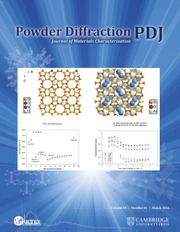The purpose of this letter is to induce research directors, educators, editors, and authors to emend or proscribe some technical papers that are deficient; namely, should be of such quality and completeness that they edify, enlighten, and engender good science? Is it, therefore, not incumbent upon all authors to avoid the egregious error of failing to include all the information required to duplicate an experiment? Why do papers lack completeness? Is it carelessness, or is it laziness? Whatever the answer, it certainly is not impossible to stop this odious habit which enervates the quality of technical articles. The truth is that authors have the information. They simply don’t include it in their paper. Please take a moment and examine a few of the papers in one of the technical journals on your desk. You will regrettably find it contains articles that lack complete and accurate instructions on how to prepare the specimens used in the experiment. Specimen preparation instructions should not be sketchy; they must be accurate and complete. If you wish to duplicate an experiment, please ask yourself if you can do it without detailed information about the method used to prepare the specimen? In addition to a lack of information about specimen preparation, many authors often neglect to include the necessary information to use an equation. Equations are included but the authors frequently fail to include a definition of every term and the units for each term in the equation. Perhaps authors should ask themselves if anyone reading a paper would be able to make a correct calculation without knowing the definition of each term and without knowing the units of each term? Is it captious to be concerned about these matters? I will not answer this question for you. I prefer to ask you if you think the literature should contain papers that lack the information readers need to duplicate an experiment? Do you want to be a part of the complicity and perpetuate this incompleteness? Who can and should avoid these things from happening? Who is responsible? I am sanguine we can all help to correct this problem. Editors, research directors, supervisors, and educators should not capitulate. They have the authority and opportunity to change the rules, to obviate the publication of incomplete papers, and make it mandatory to include the above information in every publication. If you agree that papers should be more complete and include the above material, please take a few moments to write to the editors and others you think can do something about it. The entreaty is for all of us to get the job done as soon as possible.
Note from the Editor-in-Chief
Dr. Victor E. Buhrke is the Chairman of the Organizing Committee of the Denver X-ray Conference.

